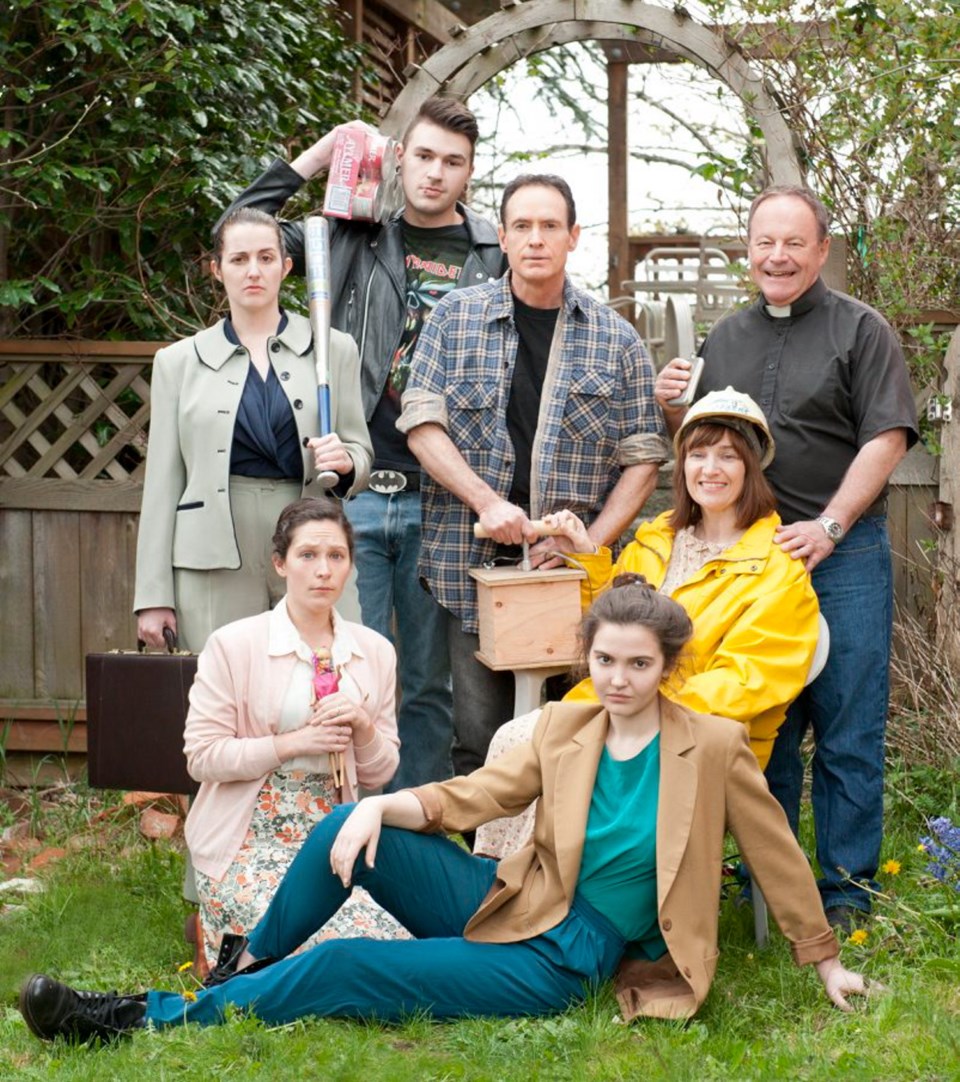In recent years, the Victoria Theatre Guild has staged some challenging and adventuresome theatre.
It’s an admirable trend — and a credit to this long-running community theatre that such plays are produced so successfully.
This season’s edgy fare included a worthwhile production of Polly Stenham’s That Face. Now Langham Court Theatre is host to an entertaining adaptation of yet another left-field offering: George F. Walker’s 1986 black comedy Better Living.
This play, nicely directed by Wendy Merk, is difficult to pull off. In particular, capturing the right tone is tricky. Better Living is a quirky piece teetering between laughs and bleak despair. Much of the time, the characters are yelling at one another.
Better Living is one of Walker’s East End plays (the others are Criminals in Love and Escape from Happiness).
The series examines the struggles of working-class urban families.
Life ain’t easy. In this play, almost everyone seems on the verge of losing their minds.
Wacked-out mother Nora (Lorene Cammiade) is digging out a basement “sanctuary” to better house her family. Her angry daughter Elizabeth (Kate Harter) is a former prostitute turned lawyer. Her sister Mary Ann (Michelle Mitchell) is a self-absorbed neurotic with a will of jelly. The youngest sister, Gail (Aisling Goodman), is bright and brimming with potential — but she’s poised to drop out of college to become a hairdresser.
A not-great domestic situation gets considerably worse — and stranger — when their long-absent father returns. Tom, played by Wayne Yercha, is a fascistic survivalist who bosses his family like a militaristic cult leader.
Tom’s boozing is surpassed only by that of Jack (Paul Bertorelli), a disillusioned Catholic priest. Colby Weeds plays leather-jacketed Junior, Gail’s dim-witted but oddly likable boyfriend.
In several respects, Better Living is like a fun-house mirror version of The Three Sisters by Chekov (a big influence on Walker).
Like Chekov’s sisters, the siblings in Better Living seem mired in stasis, unable to move forward and succeed in their ambitions.
Walker’s characters regularly come out with bizarre utterances that are simultaneously horrifying and funny. For instance, Nora says: “If your father was alive, he’d need killing. We all know that.” And when Mary Ann offers a litany of complaints, Father Jack says: “Have you ever considered suicide?”
Audiences sometimes find these Beckett-like quips puzzling. Is it OK to chuckle? Is it even funny? Happily, Thursday’s crowd enjoyed Walker’s absurdist humour, laughing often and loudly.
Under Merk’s solid direction, the cast performs well. Mitchell was particularly successful in capturing Mary Ann’s puzzling mix of hopefulness and despair, portraying the character with self-absorbed bluster.
Cammiade gave the most heightened performance, which worked quite well. Her Nora seemed brainwashed (and perhaps overly medicated) — something that might explain the bizarreness of her behaviour.
Yercha chooses to make Tom seem more deluded and driven than strictly evil — again, an approach that works.
The other sisters (Goodman and Harter) bring bristling energy to their roles. Weeds, as the boyfriend, displays a welcome comic knack. As Jack, Bertorelli at times seemed overly detached and stiltedly theatrical. Perhaps that’s what the character calls for.
Don Keith offers a fine, detailed set of a dilapidated house that, in Act II, turns into a domestic fortress.
This production is set in 1990, which is reflected in the women’s costumes and retro hits peppering the soundtrack (Platinum Blonde, Tragically Hip, Doug and the Slugs).
Where: Langham Court Theatre
When: To May 11
Rating: 3 1/2 stars (out of five)
